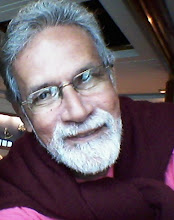Orlando Albornoz
Venezuela is a society characterized by having a powerful centralized government and uncoordinated weak institutions. In that order of ideas, the current administration is a very powerful personalized type of government and higher education is a weak institution. For these reasons, the situation of HE in Venezuela under Chavez is rather easy to explain. Once in power –via impeccable constitutional procedures- this Army man decided to take steps in order to put this institution under the aegis of the State. First of all, he opened a parallel HE system, controlled by the Government and opening access to many student that prior were either without opportunities to enter this type of studies or were uninterested. So Chavez created new and forgotten possibilities and this was a good idea. Unhappily opening access to people does not guaranty at all the achievement of academic quality. In fact, Chavez made an interesting trade-off, quantity instead of quality. Secondly he took steps in the direction of an association with Cuba, that brought into Venezuela the idea that instead of having the student’s come to the university the institution would be available everywhere, in every one of the 335 municipalities of the country. At the same time he took from Cuba the ideological model and old fashion Marxism has become the basis of all the indoctrination of the universities. This intervention of Cuba in Venezuela is a new procedure in Latin America and the Caribbean, a kind of neo colonization of Venezuela. At the same time, the private sector has been doing its business as usual but the most important universities of the country, the autónomas, are under attack. The basis of the argument is that these universities are not doing the job of training people to solve national problems. It is very easy for the Government to control these universities, public as they are and that work with almost one hundred per cent of its income provided by the State.
Autonomy is being reduced because the new universities are entirely dependent on the Government and academic freedom is nonexistent except in the autonomous universities. In the private institution academic freedom is not an issue and in the governmental universities freedom is understood as a contribution to the goals of the revolution. It is fascinating to observe that the situation in such a society, Venezuela , the question does not seem to be the dilemma between capitalism and socialism, democracy or dictatorship but an organizational question, related to access, accountability/transparency, academic freedom/quality, autonomy/good governance, and social responsibility.
Texto completo


No hay comentarios:
Publicar un comentario